A Trini's film tales: Neigeme Glasgow-Maeda on how love for French led to filmmaking
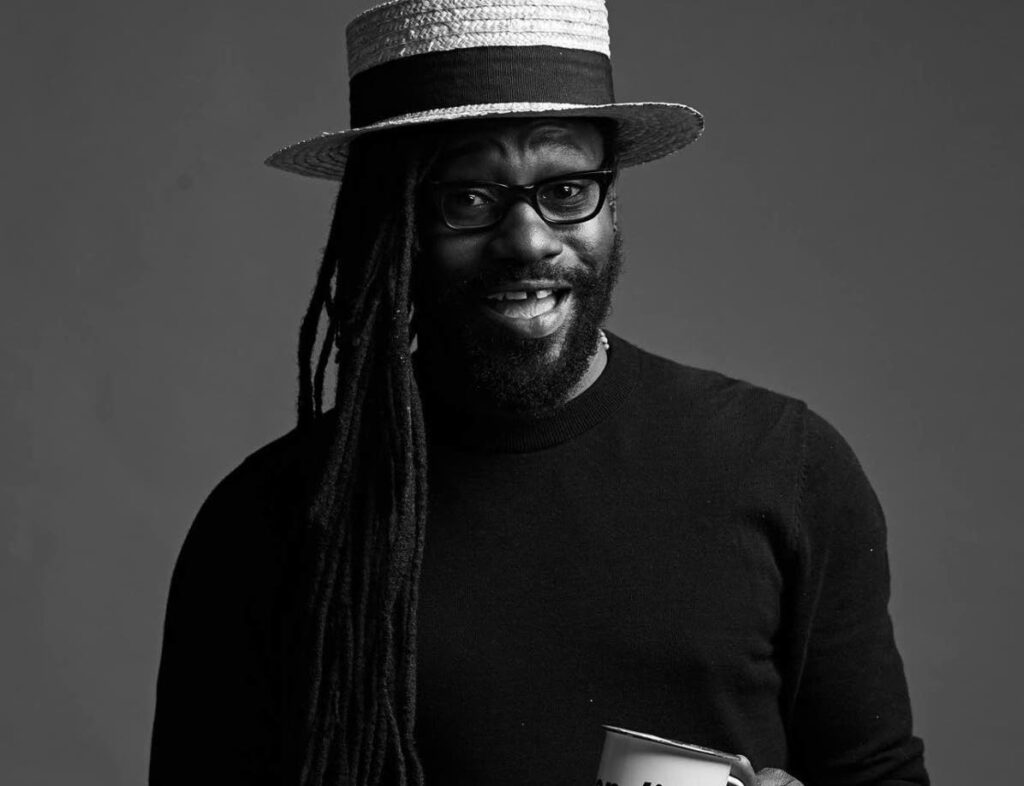
Life can take some unexpected turns, but if you seize every opportunity, it can lead you to something great.
That was the experience of film producer and production manager Neigeme Glasgow-Maeda, 48, whose interest in a little extra cash and a love for French led him to making films and travelling the world.
Among other things, he was the creator of the film production company Unit4B Productions, co-founder of Caribbean Film Corner, co-founder of Wady Films, is the director of the filmmaking programme at Secret Cinema in the UK, and was the first Trinidadian to be selected to the Berlinale Talent Campus in Berlin in 2012.
Most recently, Glasgow-Maeda was in France at the Forum Alentours – Rendez-vous De La Coproduction Rhenane 2022, a co-production forum between German and French-speaking countries, where he was part of a panel talking about the production of feature films and TV series.
He is also in the process of shooting a feature film, a co-production between Canada and Luxembourg, in the Dominican Republic and Montreal. The film is based on the forced migration of a Haitian family to Quebec during the dictatorship of François “Papa Doc” Duvalier in the 1970s.
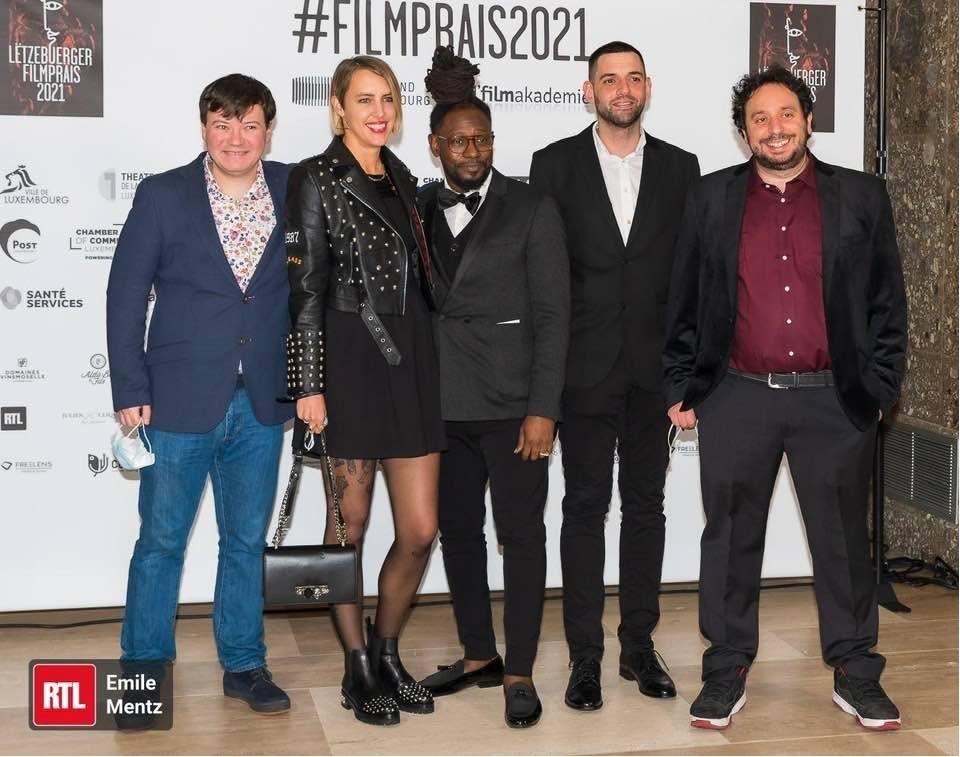
It is told from the perspective of a six-year-old boy – how he processes his surroundings and discovers a whole new world through the lens of his Catholic and Voodoo upbringing – thereby easing the themes of torture, dictatorship, and racism the family encountered in Canada.
Also, in May he had his first selection at the Cannes Film Festival with Pamfir, a Ukrainian film he co-produced about a family of smugglers. While the film did not win any awards, it was well-received and picked up for international distribution by the French film production and distribution company Indie Sales.
Glasgow-Maeda’s first experience with French started in 1988 when he was in form four at Trinity College. He would host exchange students from the French West Indies for three weeks every school vacation as arranged by the school.
“Back then you got paid to host them in US dollars, which was fantastic. Plus you got to go to Chez Moi with your crew and actually get in because you’re with foreigners. You got in to Upper Level, you went to the drag mall to shop, people remembered you – it was a real good pips. Of course, I got to learn a bit of French and I got the bug for it.”
He did business subjects for A-Levels at Polytechnic Institute and got a job at the Unit Trust Corporation where he became a Caricom Youth Ambassador and developed an interest in regionalism.
He decided he wanted to be educated in and about the Caribbean so, in 1995, he left TT for Guadeloupe where he did that country's version of A-Levels, studying French, English, German, history and geography. In 1997, he attended the University of the French West Indies and Guiana in Martinique where he got a BA in literary, linguistic and cultural studies.
He then worked on his master's of social sciences where he majored in civilisation and minored in literature. And, while studying, he started to teach English in secondary school, before lecturing at the university.
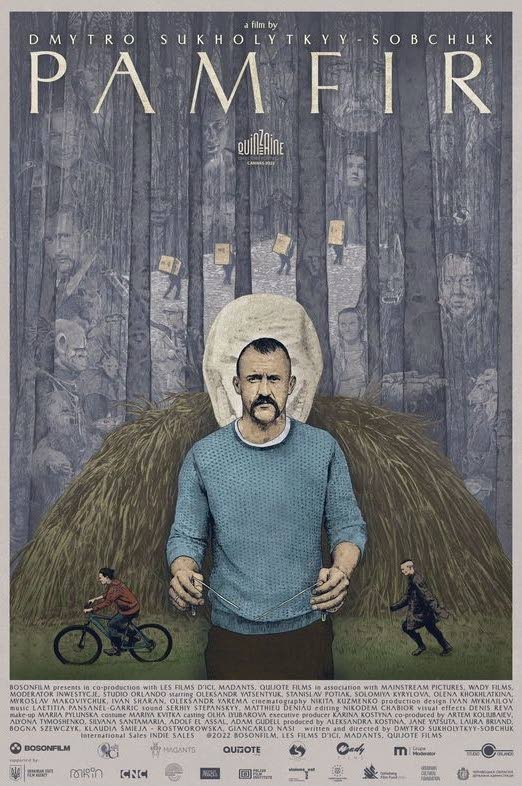
“In order to pay for university and other stuff I decided to bring people back home with me to Trinidad and do the same kind of exchange I was involved with in secondary school. I’d have people stay at our house and every year it grew, until I ended up renting planes that took 150 people to bring them to Trinidad for Carnival and to different islands in the Caribbean to do likewise.”
He said his mother, Jennylind Glasgow, who died in 2017, was a manager of mortgage and finance at National Housing Authority and an accounts teacher. She would invite students who were struggling with their studies to stay at their home for months while they focused on their exams, so inviting strangers into their home was normal.
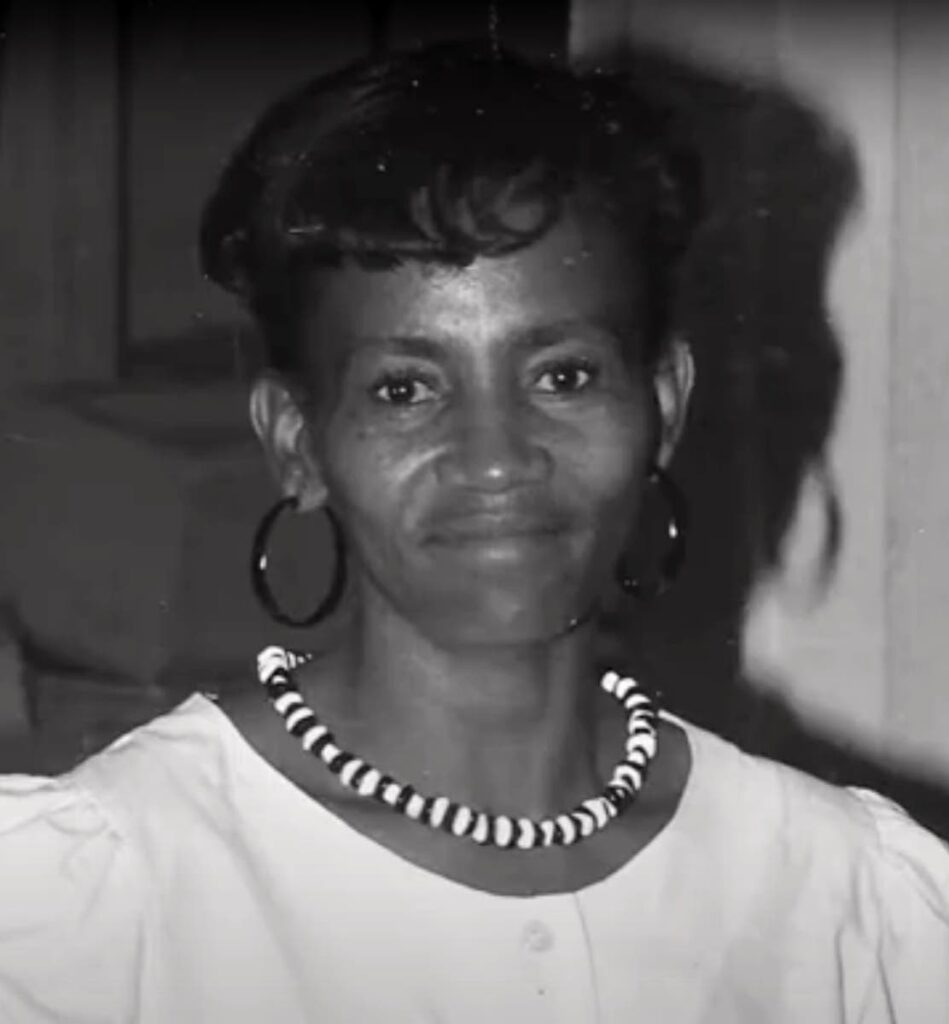
The venture also benefited his old neighbourhood in Reid Lane, Arima.
Since he also loved TV and films and would try to understand how the shows were made, while on his trips he started to film them as souvenirs for clients. He gained a photography diploma at SERMAC, Martinique, and used the films as a teaching aid for his students, highlighting the different cultures and accents on different islands.
One student, who was working for a TV station, asked if she could show one of his films on the local station. People loved it and wanted him to do more.
He said production spoke to him as it was all about logistics, for which he developed a knack while organising his trips. He applied to Institut international de l'image et du son (IIIS) in Paris, a film school, where he fell in love with production and graduated with a masters in film and television production in 2006.
In France, he got a job as an administrative assistant at a production company but he wanted to be a producer.
“When I told them I wanted to go on set they basically told me I’m good where I am and if I don’t like that then I could just leave and I’d never work in cinema in France again. So I decided to leave. I went to London and decided to be an independent filmmaker.”
There, he hung out at the London Film School and worked at a coffee shop. He got his first project to produce a student film and eventually started to do a feature film every year with the various international friends he met there.
In the midst of all that, he went to Ethiopia and got baptised in an Orthodox church.
He recalled he was at the screening of a documentary about Paramin in London when he reconnected with Trinidadian Marc Woods who, when he learned Glasgow-Maeda was also in the film industry, wanted to screen one of his films.
“I decided, instead of showing one of my films, why don’t we put Caribbean cinema at the forefront. Because a lot of people don’t know we make films in the Caribbean. They think we make one-offs, and I wanted to prepare an English or European market for Caribbean films and introduce them to Caribbean filmmakers.”
In 2009, he started the Caribbean Film Corner with Woods. It showcased up-and-coming Caribbean filmmakers and paid tribute to the Caribbean people who made their mark in theatre, film, and television around the world.
The project kicked off with Trinidadian filmmaker Sir Horace Ové and British-Trinidadian actor Rudolph Walker who gave some credibility to the young filmmakers. It continued for 12 years until the beginning of the covid19 pandemic.
It also curated Caribbean films with different organisations in Europe so when people wanted WI films or filmmakers, they called Caribbean Film Corner. When filmmakers wanted advice or to get their work released, they called Caribbean Film Corner.
He said it brought people and communities together as it included English, French and Latin Caribbean people.
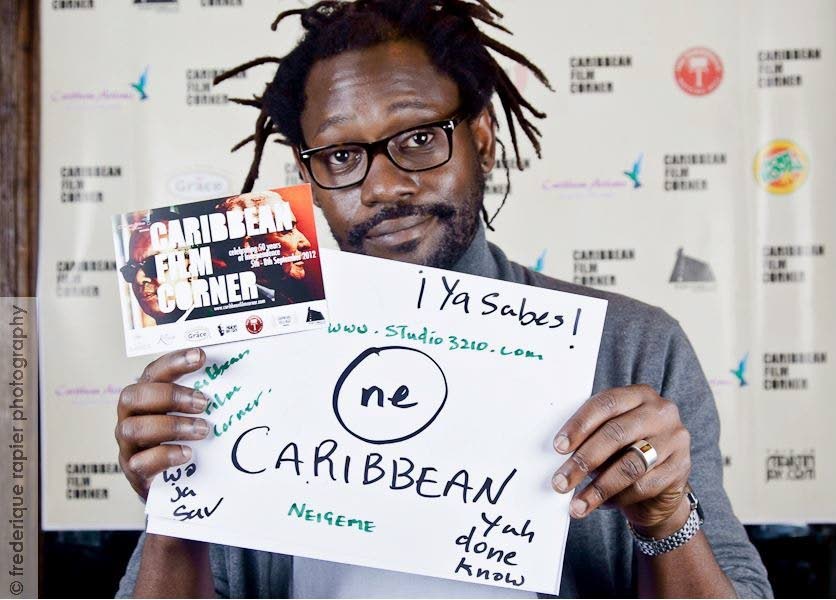
“We attached it to various film festivals across Europe so we would be able to really promote Caribbean cinema. We had some of the biggest filmmakers at the time and that allowed us to invite artistes from TT and the Caribbean to come out and perform. Some of our guys were involved in mas in Notting Hill Carnival so we were able to bring people into that.
“It fostered and created a real community that went way beyond just cinema. And it was always free so we paid for it out of pocket and through sponsorship but it had a really good run.”
But Glasgow-Maeda started to get frustrated with the industry as they would have difficulties getting financing to make the films. In 2017, he left London for Luxembourg when his friend, award-winning Egyptian director Adolf El Assal, got financed by Film Fund Luxembourg to do his second feature film.
“At first it was just to produce the film. But after seeing that the Luxembourg Film Fund was more interested in the dossier I was creating for the potential films that we wanted to shoot than my appearance as a black rasta guy from the Caribbean, that was a major incentive to staying in Luxembourg.”
He said Film Fund Luxembourg was ready and willing to properly finance their products, that the country was the wealthiest in the European Union and one of the wealthiest in the world, it was known for finance and information technology, and public transport was free so it made sense for him to stay as he wanted to get his career moving forward and to produce “serious pieces.”
He closed his own production company, left London for good, moved to Luxembourg and invested in Wady Films, founded by El Assal, as a partner.
“For a country that small, to have as much soft power as they did while being surrounded by giants, was extraordinary to me. I thought there was a page I might be able to take from their history and how they did things that might be able to help us in the Caribbean.”
In 2018, he started working on the Secret Cinema's annual Kiss Filmmaking Programme, a three-week film outreach located in the areas where Secret Cinema was held.
The London-based entertainment company recently restarted after stopping because of the pandemic. It brought films to life, giving patrons a 3D experience that crosses theatre and cinema. Its next show is Dirty Dancing in July.

The director of the company’s filmmaking programme described filmmaking as prohibitive and exclusive. He said some people wanted to get into the industry but could not afford to pay for film school.
The filmmaking programme brought industry professionals including producers, writers and directors, to facilitate master classes. And the students were able to use the Secret Cinema sets to shoot their own scripts.
“They get a certificate that is recognised by the UK Ministry of Education as a form of A-Levels in filmmaking, that would allow them to have the chance to then get into a film school. Also, it gives them contacts with these people who are already in the industry.”
At the moment he is working on his doctorate in Caribbean cultural and linguistic studies with the thesis, Caribbean cinema 70 years in the making: Building a competitive and economically viable film industry in the Caribbean.
He also teaches production and production management at a film school in Guadeloupe online and in person, and, for the past three years, he has mentored African producers through the Ouaga Film Lab.
With a father from East Port of Spain and a mother from Parlatuvier in Tobago, Glasgow-Maeda and his five sisters were taught they had to work hard to succeed.
He told Sunday Newsday when he was two weeks old his mother went to the UK on a scholarship to study accounting. The family stayed there for seven years but the children returned to a rural life with their grandmother in Petit Valley.
“We’ve had a life that has been a bit international as well as very local. We were always taught by our mother there is nothing we can’t achieve once we put our mind to it and once we work hard at it. So the world was kind of our oyster.
“She is my role model. She led by example and taught us how important it was to give back. She raised us to understand that money doesn’t grow on trees and anything we want we have to work for it.”
The siblings had other good role models including former government minister Morris Marshall who was a friend of their father; family friend, broadcaster and writer Darcus Howe; and the country's first prime minister, Dr Eric Williams, who was his eldest sister’s godfather.
“I don’t really think of myself as having achieved anything extraordinary. I see myself as normal. When I come back home I’m bareback in short pants and slippers. I go and finish work land. I’m big on family and living simply.
“Although they influence each other, I kind of separate what I do from who I am. Any kind of stardom is not real. Real is knowing how to make sure you have food and a roof over your head. If today or tomorrow my film career is over, I still have to be able to sustain myself.”
Glasgow-Maeda’s wish is to create something that would continue to exist long after he is gone.
He said he and his Wady partner, El Assal, brought diversity to Luxembourg cinema and tried to get people to understand the diversity, telling stories that were not euro-centric, was also important.
During the pandemic, he said, there was no government aid for filmmakers. So he and El Assal solicited the Film Fund and got £60,000 and, with another production company, distributed Quickies, grants of £2,000, to 15 Luxembourg filmmakers for them to continue to create.
That action resulted in 18 short films which were picked up by a local TV station, and they showed they were there to give back and to help the Luxembourg film industry grow.
They plan to distribute more Quickies next year, this time focusing on young filmmakers in the hopes that, when they complete their film studies abroad, they would be encouraged to return to Luxembourg.
He said he wanted the company to continue to exist and invest in the same type of stories in decades to come.
“I would have never thought, while living in Trinidad, that I would ever be able to do what I’m doing now, or that I’d be where I am. A lot of people may think, with the success that we’ve had, that it’s all roses and that we’re rolling in it.
“But the fact of the matter is, for the time being and for the next five years, we will be reinvesting almost everything that we make into our company and into the films we produce so that we will be able to make that legacy a reality.”
He said over the past five years, he spent three months a year in the Caribbean. During that time he did a few collaborations including one with Caribbean Tales’ Ulric Cross documentary.
He said he always tried to guide and advise Caribbean filmmakers. At one point, together with Unifrance, he brought film commissioners from the Caribbean to Cannes to better understand the international film industry.
But, he lamented TT’s “pro-American” attitude to filmmaking. He said many tried to follow “without understanding the reality” and so things did not work out for them. But he believes TT filmmakers will learn and the time will come when they will be ready to do more Caribbean-based work. And he intends to be there to help when they are ready.
“When they understand how the sector works, then they will be able to better put things in place so we (TT) could produce things of quality regularly, that work. And it’s not just us. We have to do this together as a region because we can’t afford to produce a film in TT alone that would hit an international market. We need co-producers and we need to be able to find those at home without going to the US and begging.”


Comments
"A Trini’s film tales: Neigeme Glasgow-Maeda on how love for French led to filmmaking"